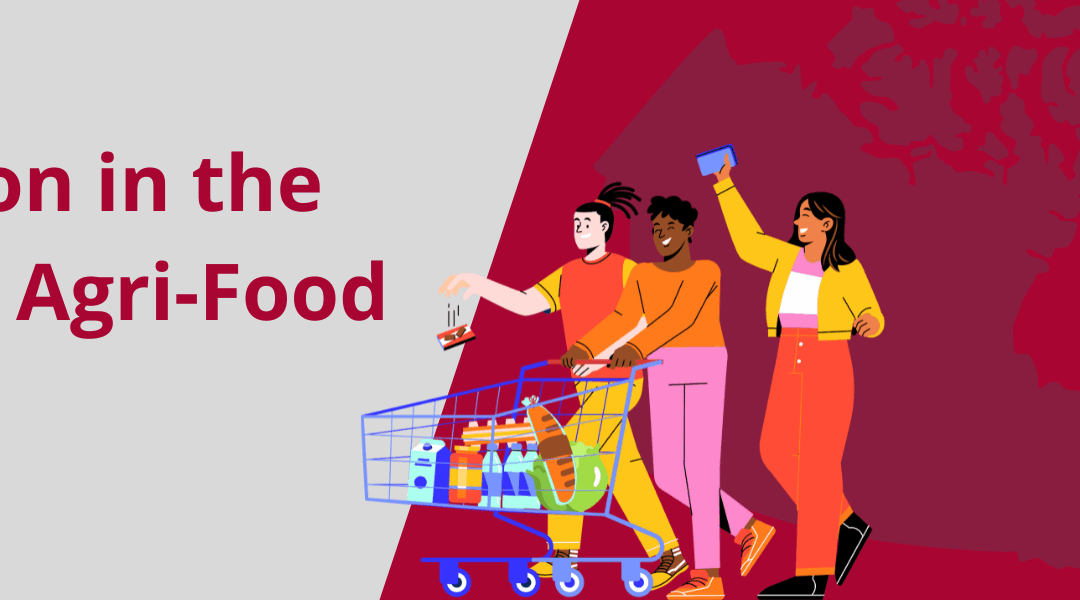Meeting Canadian market requirements
Canada is brimming with gourmet treasures: artisanal cheeses, maple products, microbrewery beers, regional ready-made dishes… Our agri-food businesses are thriving, and many are dreaming of breaking into new markets, whether elsewhere in the country or abroad.
With more and more Canadian consumers looking to buy locally and support domestic producers, now is the perfect time to showcase our products from coast to coast. But exporting isn’t just about translating a label. Whether it’s nutritional information, ingredients, mandatory statements or marketing elements, every word must be carefully chosen. As the choice of terms influences a consumer’s perception of a product, translation can play a crucial role in the success of an export project, for example. Here’s how to maximize the reach of your communications.
Adapt to other markets while retaining authenticity
In the agri-food sector, translation is not simply a matter of switching from one language to another. You need to adapt the message you want to convey to a new commercial market. A pun that works in Canadian French may fall flat or be misinterpreted in another language. Even product descriptions need to take local preferences into account: an English-speaking consumer in British Columbia won’t be swayed by the same arguments as a customer in France or the United States. You need to rethink your message so that it speaks to your new target audience, while staying true to your brand.
Comply with language regulations
Exporting products also means complying with the standards in effect in each market:
- In Canada, the Official Languages Act requires companies to offer their products in both English and French, including labels, ingredient lists, warnings and advertising.
- In Europe, other regulations apply, notably on allergens, nutritional values and origin labelling.
In the United States, the Food and Drug Administration imposes strict labelling requirements on food products. These requirements apply to mandatory information on packaging, advertising and any other material intended for consumers. They must include, among other things, the name of the product, the net quantity, a list of ingredients, nutritional information, allergens, the name and address of the manufacturer or distributor, and any required warnings. For example, an incorrect translation or the omission of a key element can lead to customs clearance refusals at the border, product recalls or costly penalties. A translation team specialized in the agri-food sector will avoid these pitfalls by working with experienced revisers and rigorously controlled terminology.
Sell with the right words
A consumer’s first contact with a product is often the label. That’s why a well-crafted description, a catchy slogan or a clear promise can make all the difference on the shelf or on online platforms. But to do that, you need to translate with flair. Translating word for word definitely won’t cut it. In this specific context, we’re talking about transcreation: a creative approach that adapts your tone, intention and image to another market. This is what keeps your brand consistent and appealing, whatever the language.
Terminology and consistency
In the agri-food industry, consistency of vocabulary is essential. A word used to describe an ingredient or a manufacturing method must always be translated in the same way, otherwise it will cause confusion or undermine your brand’s credibility.
To achieve this, it is crucial to:
- build a personalized glossary
- use a translation memory to maintain consistency across all your media (labels, data sheets, newsletters, packaging, etc.)
- work with a specialized language service provider that is well versed in the technical vocabulary of the food industry
Translation as a strategic investment
Lastly, working with a translation agency with expertise in the agri-food sector is a strategic investment if you want to export your products effectively. The agency will skillfully:
- support you in applying language and regulatory requirements specific to each market
- offer translations adapted for your target markets
- ensure the quality, fluidity and consistency of all your multilingual content
- handle emergencies and frequent updates seamlessly
Translation prepares your product for travel
Exporting a Canadian agri-food product means showcasing our know-how, creativity and culinary heritage. At a time when consumers are looking for authentic, home-grown products, exporting is not just a gateway to foreign markets; it’s also an opportunity to raise your profile locally, across the country and internationally. To cross these borders successfully, translation must not be an afterthought. It needs to be considered upstream as a genuine growth lever, capable of making your values resonate in all languages.
Because when the nature of a product is properly translated, its flavours travel without losing any of their authenticity.
Visit our website and request your free consultation.

